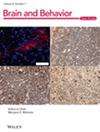Resveratrol Alleviates the Prenatally Intermittent Hypoxia-Induced Cognitive Impairment in Male Offspring Mice Through Modulating the SIRT1/HIF-1α Pathway
Abstract
Objective
Growing evidence indicate that prenatal intermittent hypoxia (PIH) exposure can have an impact on the critical brain nerve development of the fetus, resulting in cognitive deficits in the offspring mice. Resveratrol, recognized for its anti-inflammatory and antioxidant capabilities, has potential to ameliorate synaptic dysfunction, which in turn may contribute to its positive influence on cognitive impairment. Nevertheless, the precise manner in which resveratrol mitigates cognitive deficits stemming from maternal hypoxia remains to be fully elucidated, including the specific mechanisms at play.
Method
Pregnant C57BL/6J mice were exposed to intermittent hypoxia using the ProOx-100 animal hypoxia control system during late pregnancy for 7 consecutive days. Resveratrol treatment at 40 mg/kg dosage was given to the subjects between postnatal Days 60 and 88. Morris water maze test was utilized to assess the cognitive capabilities of the male offspring mice. ELISA was employed to measure the concentrations of pro-inflammatory cytokines within the hippocampal region of the mature offspring mice. The expression levels of the regulatory proteins SIRT1 and HIF-1α, along with the synaptic plasticity markers SYP, Arc, GAP-43, and PSD-95 were measured by employing western blotting and RT-qPCR.
Results
In male offspring subjected to PIH, there was a marked decline in learning and memory capabilities, accompanied by increased levels of IL-1, IL-6, and TNF-α within the hippocampal region. Administration of resveratrol notably ameliorated the cognitive deficits observed in these offspring and mitigated the heightened levels of pro-inflammatory cytokines. Furthermore, exposure to PIH was associated with a reduction in the expression of key proteins such as SIRT1, HIF-1α, Arc, GAP-43, PSD-95, and SYP within the hippocampal region, which were subsequently normalized following resveratrol intervention.
Conclusion
The findings from our study indicate that resveratrol potently alleviates learning and memory impairments, the inflammatory response, and impairments in synaptic plasticity, which are induced by maternal intermittent hypoxia, by modulating the SIRT1/HIF-1α signaling pathway.


 求助内容:
求助内容: 应助结果提醒方式:
应助结果提醒方式:


